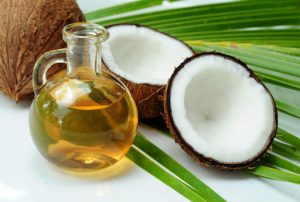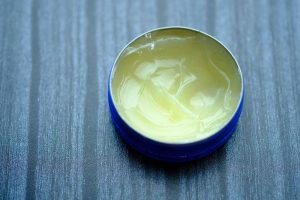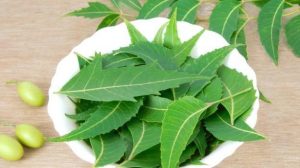When the outermost layer of skin does not have enough water, we experience dry skin (hydration). This layer then starts to disintegrate, becoming flaky and showing small lines or fissures. If you have tried moisturizers and topical creams without seeing lasting results, you may want to give home remedies for dry skin on the face a shot.
Home Remedies for Dry Skin
Whether your skin is dry naturally or because of external influences, the discomfort and itchiness are the same. It’s likely to grow even worse as we get into the colder months of the year. However, there are ways to alleviate skin dryness and make winter more bearable.
Coconut Oil

Coconut oil has moisturizing qualities. The intercellular spaces in your skin will be filled with emollients, leaving you with a silky smooth surface. This is because the saturated fatty acids in coconut oil are found naturally and can help to moisturize and smooth the skin.
Daily usage of coconut oil is safe for even the most delicate skin areas. The corners of your lips and the area immediately under your eyes are two such places. Coconut oil also has the benefit of not requiring any additional additives. Coconut is mild enough to use frequently without irritating the skin.
Antioxidants and Omega-3s

Dry skin indicates that skin cells are being damaged by environmental factors quicker than the body can repair them. Your skin can look healthier by eating certain foods. Antioxidant-rich foods protect cells from toxins and promote cell growth and repair. A few examples of skin-friendly foods are blueberries, tomatoes, carrots, beans, peas, and lentils, etc.
Honey

To soothe an irritated or dry area of skin, your grandma may have suggested you use honey. Honey is a natural anti-inflammatory and a great moisturizer. Either put it on your face straight or mix it with some milk for a face pack.
Tomato

Instead of buying an expensive scrub, make your own with simple, natural ingredients at home. Sugar and tomato together are a skin-saving miracle. Take a tomato slice, dip it in sugar (about a tablespoon’s worth), and massage it all over your face. After ten minutes, rinse for silky smooth skin. Lycopene in tomatoes can be used as a natural sunscreen, and sugar can be used as a natural exfoliator.
Petroleum Jelly

Because of its mild nature, petroleum jelly is often recommended as a remedy for dry skin. It prevents your skin from losing its natural moisture, which can lead to painful dryness in the winter.
Rose Water

Many facial masks and washes include rose water because of its beneficial effects. The same effect might be achieved by applying rose water directly to the skin. Apply some rose water to your face with a cotton ball. Just use some cold water to wash it off. It has a calming, hydrating, and nourishing impact on the skin.
Apple Cider Vinegar

It’s been found that applying apple cider vinegar regularly can help skin retain its natural ph and moisture levels. To treat dry skin, combine 1 teaspoon of apple cider vinegar with 1 teaspoon of water and apply the solution directly. Keep the dryness at bay by doing this once a week.
Neem Leaves

The neem tree is used for its leaves, which have several uses in medicine. To prepare, combine 2 teaspoons of dried neem leaves, 1 teaspoon of milk cream, and 2 teaspoons of water. When applied to the skin, neem leaves nourish it and improve its overall condition. Use of the face pack has other benefits, including the depletion of acne.
Steps for Prevention of Dry Skin
Maintaining a smooth and youthful complexion is crucial. The first line of defense against infectious agents is the skin. Itching can weaken your skin’s protective barriers, leaving you vulnerable to infection. Even if your skin isn’t particularly dry, you should consider making regular use of a decent moisturizer part of your routine.
In fact, one of the greatest strategies to prevent outbreaks of dry skin is to maintain a healthy skin barrier on a daily basis. Protect your skin from UV damage and dryness by applying a hydrating sunscreen every day.
Avoid Allergens and Irritants
It’s possible that the garments you’re wearing or the environmental factors you’ve been subjected to have something to do with your skin suddenly being dry. The dry air from a fireplace, the chemicals in chlorinated or chemically treated water, and even wool clothes can all irritate and dry out your skin. Think about your skin and the conditions it is in.
Wear Gloves
Hands are frequently subjected to irritants in the surroundings and among these are laundry detergent and dishwashing liquid. Gloves should be standard equipment for anyone working with liquids. When the weather drops and you have to work outside in the cold, your hands also take a beating. Insulated gloves can help prevent dry, irritated skin while doing housework or spending time outside in really cold weather.
Retain Natural Moisture
Choose products carefully to avoid having your natural oils stripped. Products like harsh scrubs, gel formulations, and foams are likely to be too harsh for your skin.
Adjust Shower Temperature
Changing your bathing routine might do wonders for dry skin. Even though most individuals favor taking hot showers, doing so can cause severe burns. Even soaps that say they will help your skin by moisturizing and repairing it may actually do the reverse. Harsh chemicals can cause skin to weaken and allergic reactions. Try to limit your shower time and use warm water rather than hot. Try to choose fragrance-free soaps that are milder on the skin.
Avoid Scrubbing Skin Aggressively
So, you notice that your face is flaky and covered in white patches even when it isn’t winter. Your initial inclination shouldn’t be to use a rough exfoliator to scrub it off. When caring for dry skin, it’s best to take it easy, just like you would with any other skin type.
When to See a Doctor
If the person’s skin is dry and it isn’t due to environmental factors or aging, then they may have a skin issue. A doctor should be consulted if there is any suspicion that this is the case. A person may want to consult a doctor about available over-the-counter therapies for dry skin if self-care measures and commercial moisturizers are ineffective. It’s crucial to prevent dry skin and treat it as soon as it appears. An infection caused by bacteria can cause redness, swelling, and pus. A skin infection is a medical emergency, so it’s best to get checked out right away if you notice any symptoms.
















